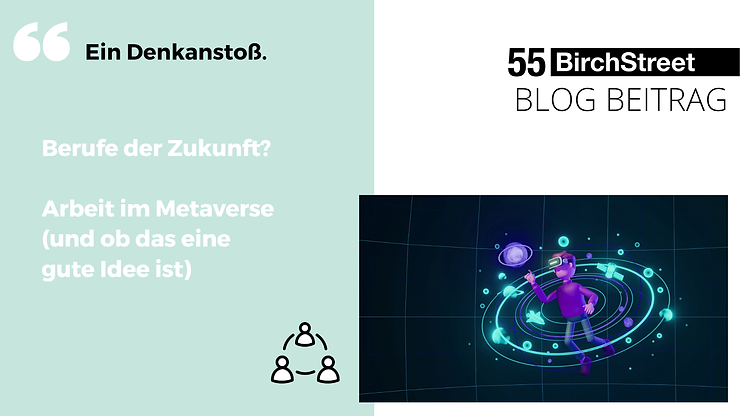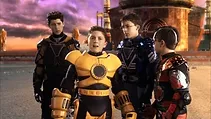

Digital realities are a scenario that has now been sufficiently illustrated to us by films such as Matrix, Ready Player One, Tron or, of course, the cinematic masterpiece Spy Kids 3-D: Game Over 😉.
All films seem to agree on one point: Virtual reality is somehow not a good idea and maybe we should touch grass while we still can. The excitement was understandable when Meta — known as Facebook just before — announced that it wanted to found the metaverse. Why not? The presentation of a digital reality is definitely exciting and for many a sci-fi'esque childhood dream like flying cars. According to Nicholas Carr However, this is Mark Zuckerberg's answer to a simple problem: Overall, the world seems to agree that Facebook hasn't done much good for it. Perfect, then we just get rid of the world and program our own. It's cool.
Sounds cynical, but is it? Because where are the potential and dangers of such a virtual reality — and assuming that virtual reality becomes ours, what would a working world in the metaverse look like? What jobs would result here?
Here are a few scenarios.

He doesn't like people, but he understands the metaverse like no other. Martin is an avatar in the Metaverse and works there as a tour guide for those who are less familiar with the subject matter than Metaverse Martin. He explains:
The metaverse is, as the name suggests, a digital universe created by Meta. Various technologies such as virtual reality, augmented reality or simply video are used here. The idea and goal is for people to be able to play, work and “live” in this digital world. This virtual world is therefore not just an escapist alternative to reality, It is also a new way to live.
Accordingly, the metaverse is a holistic representation of various digital, immersive spheres; social media you can touch. For those who do not have a strong understanding of digital technologies, trends, art and culture, there are tour guides like Martin. It is a tutorial made human and then digitized. Comparable to children who explain to their parents how to install WhatsApp, but Martin gets money for it.

Martin isn't the only avatar in the metaverse, of course — it's full of it. Digital representations of ourselves, as you know them from Memojis, Nintendo's Mii's and many more (emphasis is often on the me syllable to emphasize again That I am). Makes sense, because in order to move in a world, you also need a body — and that is exactly what the said avatars are there for. They enable us to do all the fun things, such as social interactions or those with the world itself, and save us the unpleasant stuff from the real world, such as a colonoscopy. In this sense, the metaverse is an excellent option for neurodivergent people, people with physical disabilities, and simply extremely introverted people. However, as the saying goes: Where there is a will, there is also a way and where there is a body, there is a work resource.
Predicting the jobs of the future is pretty tricky, or did someone want to become a social media manager 20 years ago? Fortunately, there are experts on this subject such as Adrien Book, who have already summarized for us which 10 professions could be created by the metaverse. In the quick overview:
Of course, all of this is just speculation before the metaverse really came to life. In theory, there could be anyone and no job in the metaverse — and it is not uncommon for occupations to arise from a need. Who knows one hundred percent where it is located when construction is still being carried out? Maybe there are also brokers — who knows? At OMR, you could buy at least the first plots of land in the metaverse. For buyers, this is the first step towards the said childhood dream.
Always slow: We don't even have a grip on social media — and that's a decidedly unspoken problem in this matter, because We don't even know how to fix the whole thing. Nicholas Carr presented this the following analogy on:
In 1923, a doctor named John Brinkley, who had made a fortune transplanting goat testicles into men as a treatment for impotence, had started his own radio station, KFKB, in Kansas. He used it to promote a variety of quack treatments and medications, often offering specious and dangerous on-air diagnoses to listeners. In 1930, the FRC stripped Brinkley of his broadcasting license, ruling that his programming “is inimical to public health and safety, and for that reason is not in the public interest.”
And to put it bluntly, In the words of Martha Bayle: The Internet is full of goat stuff. It is therefore justified to ask whether we are prepared to live and work in a social media based world before We can effectively regulate social media Perhaps existing capacities should first be delegated in this direction before buying land in the metaverse. Without trying to sour up the excitement of the metaverse — these are simply questions and problems that must be addressed first. Mark Zuckerberg certainly won't do that. Because as exciting as it all may be, the metaverse continues to be the product of a big tech company with a variety of scandals. Technical progress is all well and good — but so is a clean sheet before the Tech Overlord is named.
So what is the solution? Should we all learn to code? Maybe — but we won't. Until then, the working world in the metaverse may be an undertaking for future generations and the digital nomads of the future. The potential is great because, as I said, the metaverse can theoretically do almost anything. Nevertheless, out of sheer excitement, one should not disregard the dangers and view the overall situation with a certain degree of skepticism.
For further reading:
Do you have a question or would you like to find out how we can work together?
Feel free to contact us here or via linkedin with us — we'd love to hear from you